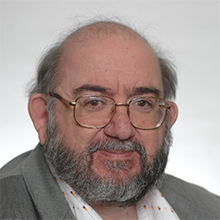Professor David A. Hodgson: a tribute
19 January 2024

The Microbiology Society is saddened to report the death of David Hodgson in December 2023 following a long illness.
David Hodgson was a very talented and respected microbiologist who was a highly valued member of the Department of Biological Sciences (latterly the School of Life Sciences) at Warwick University. David had a global reputation for his generous nature and encyclopaedic knowledge of things microbiological – traits that made him an ideal, rigorous examiner in roles as Internal and External Examiner for many PhD candidates. His wisdom and humour were highly appreciated by domestic and international colleagues whose esteem was illustrated by the spectrum of distinguished contributors to a two-day celebration of his career in 2015, when he retired. David had uniquely diverse expertise in the genetics and molecular biology of Streptomyces, Myxococcus and Caulobacter and his fascination with the life cycles and physiology of these differentiating bacteria led to intriguing insights into their regulatory mechanisms. David collaborated with many academics and was a visiting academic at the University of Surrey. He was an important contributor to collaborative research at Warwick, playing a key part in a large Warwick-based transnational research programme which helped to redraw the carbon metabolic pathways of Streptomyces coelicolor.
David studied Microbiology and Virology at the University of Warwick, graduating with an exceptionally high first-class honours degree. He went on to take his PhD at the John Innes Centre in Norwich/UEA working on physiological aspects of Streptomyces. He then moved to a postdoc position in New York working on the molecular biology of Caulobacter differentiation. This was followed by a postdoc move to California to work on Myxococcus.
After these spells in the USA he was recruited back to Warwick as a lecturer in Microbiology and there he developed his own research group working on the physiology and molecular genetics of Myxococcus and Streptomyces. He also started to tackle aspects of DNA computing.
Sabbatical leave and a Fulbright Senior Research Scholarship award allowed David to return to the USA to expand his research work and to initiate a new collaborative project on the isolation and characterisation of novel bacteriophages of Listeria.
David was naturally jovial and enthusiastic, a very popular teacher with a great sense of humour and he was a tremendous source of knowledge on bacterial genetics and physiology. He was a “go-to” person for multiple academic staff, PhD students and postdocs to get information and advice on very diverse microbiological topics. He was awarded a DSc in 2007.
As an academic he was highly respected. He served twice as an Elected Member of the Council of the Microbiology Society and, among multiple roles, he was a dedicated and highly effective and efficient Convener of the Physiology, Biochemistry and Molecular Genetics Group (PBMG) of the Society – a role that benefited from his sheer breadth of knowledge of microbiology. One feature of David’s early life that will not be widely known was the award of multiple medals for ballroom dancing, as a young man – though perhaps that may not be such a big surprise for a talented boy from Blackpool!
Elizabeth Wellington and George Salmond
